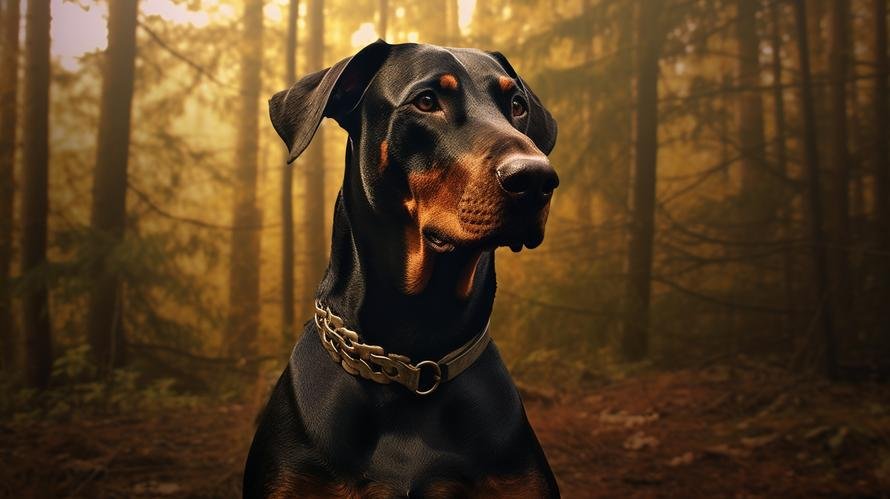Did you know that Dobermans are considered one of the most intelligent and easily trainable breeds in the world? That’s right! Despite common public perception of these dogs as dangerous, most Doberman Pinschers are actually gentle, loyal, and extremely caring creatures. Let’s dig deeper into this captivating world of Dobermans and gain a better understanding of these highly misunderstood creatures.
The first thing you need to know is whether a Doberman Pinscher is a dangerous dog breed. It’s easy to judge a book by its cover, and in this case, the Doberman’s physical appearance doesn’t do it any favors. Sleek, large, and boasting a powerful stature, Dobermans often strike fear into the hearts of those unfamiliar with the breed. However, the truth just might surprise you.
Don’t get me wrong. Dobermans, like any dog breed, do have a potential to be dangerous. They are naturally protective and can react aggressively if they perceive a threat. It’s this very attribute, coupled with their intelligence and allegiance, that puts them among the top choice for police dogs, guard dogs, and search-and-rescue dogs. However, a well-bred, well-socialized and well-trained Doberman is far from a dangerous dog.
You see, the aggression level and general temperament of a dog is more a consequence of its upbringing and training than its breed. To put it simply, there are no ‘bad dogs’, just bad owners. An abused or neglected Doberman – or any dog, for that matter – can become nervous and potentially aggressive. They react like this out of fear, stress, or simply due to lack of socialization.
However, when a Doberman is raised in a positive, non-abusive environment, they are known to be extremely loyal, sensitive, and family-oriented. These dogs form strong bonds with their family members and tend to mold their personalities to fit the lifestyles of their owners. They crave bonding time and aren’t the type of pets to be left outside in a yard by themselves all day long. The more engaged they are with their family, the happier they will be.
Moreover, Dobermans are known to be fantastic with children. In families where they are raised with kids, Dobermans show a unique bond and protective nature towards them. It’s important, however, that children are also taught to respect the dog and understand how to relate with it appropriately.
Now, as for the Doberman’s alleged ‘ferocity’, consider this. The American Temperament Test Society conducts tests to measure stability, shyness, aggressiveness, and friendliness in dog breeds. According to their data, Dobermans scored a pass rate of 79.1%, which is higher than the “so-called” friendly breeds like Golden Retrievers and Beagles!
On another note, getting a Doberman puppy from a reputable breeder is vital. It ensures the puppy has been bred for temperament and good health traits rather than just looks. A professional breeder does not merely sell dogs, but they are there to provide help, advice, and support to new owners to ensure the puppy grows into a well-adjusted, healthy adult.
In addition, training is key. Any dog, irrespective of breed, can become a problem if not trained properly. Dobermans are no exception. Consistent, positive reinforcement training methods work best with them. Socializing your Doberman from a young age to different people, other dogs, and varied environments will also help reduce any fear or aggressive tendencies.
So, is a Doberman Pinscher a dangerous dog? Quite the contrary. With the proper upbringing, these dogs are wonderful, loyal, and loving companions. They possess a strong desire to please and protect their family, which makes them one of the best family dogs out there.
The moral of this tale? Let’s stop breed stereotyping. It’s not fair to the dogs, and it’s not fair to the people who love them. With a little understanding, care, and a lot of love, every Doberman Pinscher has the potential to be a fantastic addition to any family.
So, before you cross the street the next time you see a Doberman, remember: they’re not the villain in the story. More often than not, they’re the misunderstood hero. As the famous saying goes, “Don’t judge a dog by its breed.”



